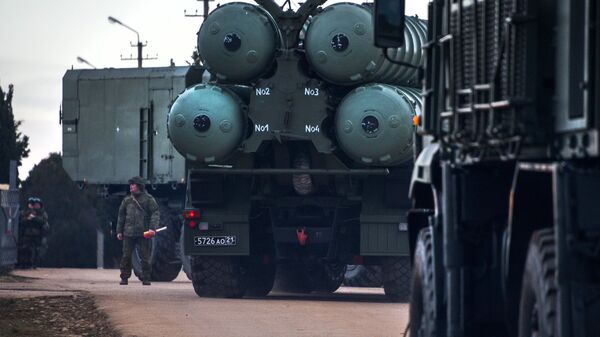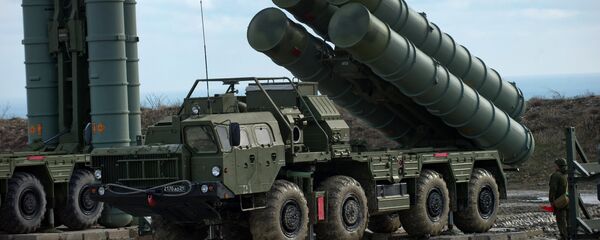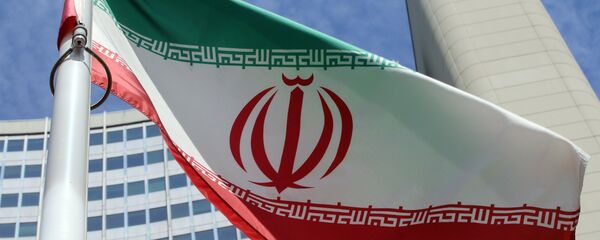"We want to purchase any weapons that will strengthen the security of Iraq and the country's Armed Forces. At the same time, we respect regional and international commitments. There are a number of obstacles on the path [of buying] S-400 systems. The Iraqi side is still negotiating, and when the final decision is made, it will be considered," Jaafari said.
Speaking further, the minister noted that the US veto could be an obstacle preventing the purchase of S-400 systems.
On Cooperation With Syria
According to Jaafari, Baghdad is ready to begin coordination with Damascus in order to eliminate terrorists’ hotbeds on the border between the two countries, Iraqi Foreign Minister Ibrahim Jaafari said Wednesday.
"There is no hesitation that we are ready to establish coordination between Syria and Iraq in order to destroy the hotbeds of terrorism on the border. We cooperate with all countries that are fighting terrorism," Jaafari told a press conference at Rossiya Segodnya International Information Agency in Moscow.
Jaafari's statement comes two months after Iraqi Prime Minister Haider Abadi declared the end of the country's fight against Daesh after Iraqi troops had re-established complete control over the country's border with Syria.
READ MORE: Daesh Still Poses Security Danger in Northern Iraq — Kirkuk Governor
Daesh had kept Iraq under its control for several years, beginning in 2014, after seizing Mosul, the country's second-biggest city, and making it the terrorist group's so-called capital in Iraq. In the summer of 2017, Iraqi forces regained control over the city, while later in November, over the town of Rawa, the last Daesh stronghold in the country.
Syria had also been fighting Daesh for many years. Last December, Russian Defense Minister Sergei Shoigu reported a complete victory over Daesh terrorists in the east and west banks of the Euphrates in Syria.
The overwhelming defeat over the group in Syria followed the liberation by government forces of the last major Daesh stronghold in the country, the town of Abu Kamal.
On Relations With Iran
Iraq may contribute to the improvement of relations between Saudi Arabia and Iran, and is continuing to make efforts in this field.
"Undoubtedly, Iraq has good-neighborly relations with Syria and Turkey, on the one side, and with Iran and Saudi Arabia, on the other side. We have been working on their rapprochement and are continuing to make efforts [in this field], because the relations and assets, which Iraq possesses with these states, demand overcoming the tension, since all these countries are Iraq’s geographical neighbors," Jaafari said.
On February 19, at the Valdai Discussion Club’s Middle East Conference, Jaafari stated that Tehran and Riyadh could cooperate on Iraq, Syria, and other issues.
Iran and Saudi Arabia support opposite sides in the Syrian civil war. While Shiite-dominated Iran supports the Syrian government, Sunni Saudi Arabia backs Syrian opposition forces. The two countries severed their diplomatic relations in January 2016.




